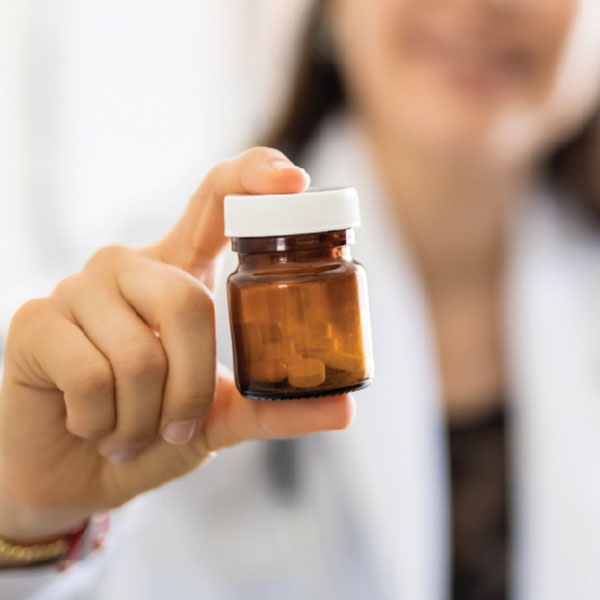LOCATIONS
Addiction Recovery Help and Resources for Drug Rehab on Long Island
Local Resources & Information to Kickstart Your Recovery Journey
If you are in the Long Island area and need help now, call (888) 290-5601
Help is available for those struggling with addiction on Long Island
If you or a loved one is struggling with addiction, please know that you are not alone. Help is available in the Long Island community. Several organizations provide comprehensive addiction treatment and support services to help individuals overcome substance abuse and get their lives back on track.
Don’t hesitate to reach out for the support you need to overcome drug and alcohol use.
Types of Addiction Treatment on Long Island
When seeking a drug addiction treatment center on Long Island, several levels of care are available to address different needs and stages of recovery:

Medically Supervised Detox
The first step for many people is medically supervised detoxification. This process involves safely managing withdrawal symptoms under the supervision of medical professionals. The goal is to stabilize the individual and prepare them for further treatment. This level of care ensures that detox is as comfortable and safe as possible, minimizing health risks associated with withdrawal.

Medication-Assisted Treatment (MAT)
For those who require ongoing support during their recovery, Medically Assisted Treatment (MAT) can be highly effective. MAT combines medication with other modalities to treat substance use disorders. The medications used can help reduce cravings, alleviate withdrawal symptoms, and support long-term recovery efforts. This approach is tailored to each individual’s needs, helping them maintain stability and focus on their recovery goals.

Inpatient Treatment
Inpatient rehab provides a structured environment where individuals live at the treatment facility while receiving intensive care. This type of treatment is ideal for those who need a higher level of support and supervision, often due to severe addiction or co-occurring mental health conditions. Inpatient programs offer a comprehensive range of services, including therapy, medical care, and life skills training, all within a supportive and controlled setting.

Aftercare
Once initial treatment is complete, aftercare is crucial for maintaining long-term recovery. Aftercare services may include outpatient therapy, support groups, and ongoing counseling. This phase helps individuals transition back into daily life while continuing to receive support. Aftercare aims to prevent relapse, promote sustained recovery, and support personal growth as people integrate the skills and insights gained during treatment into their everyday lives.
How to Choose the Right Drug or Alcohol Rehab on Long Island For Your Loved One
Choosing the right drug or alcohol rehab for a loved one in Long Island can be a daunting task, but taking a thoughtful approach can significantly enhance their chances of successful recovery:
- Assess their individual needs: Evaluate your loved one’s specific needs, including the severity of their addiction, any co-occurring mental health conditions, and their personal preferences. Different rehab programs cater to various levels of care, such as detox, inpatient, or outpatient services, so it’s essential to choose one that aligns with their unique situation.
- Check accreditation: Ensure the rehab facility is accredited by relevant organizations, such as the Joint Commission or the Commission on Accreditation of Rehabilitation Facilities (CARF). Accreditation indicates that the facility meets high standards of care and safety. Additionally, confirm that the facility is licensed by the New York State Office of Addiction Services and Supports (OASAS).
- Evaluate aftercare and supportive services: Long-term recovery is supported by effective aftercare. Check if the facility offers aftercare programs, such as outpatient therapy, support groups, and relapse prevention strategies. A comprehensive aftercare plan helps ensure continued support and reduces the risk of relapse once treatment ends.
- Verify insurance and expected costs: Confirm whether the facility accepts your loved one’s insurance plan and what out-of-pocket costs might be involved. Many facilities offer financial assistance or sliding scale fees based on income. Understanding the financial aspect can help avoid unexpected expenses and ensure that treatment is affordable.

Continuing Recovery Care & Sober Living Programs on Long Island
After completing a primary addiction treatment program, continuing recovery care and sober living programs play a vital role in sustaining long-term sobriety and supporting personal growth. On Long Island, these programs offer structured environments and supportive communities designed to help people navigate the challenges of early recovery and build a solid foundation for a healthier future.
Continuing recovery care encompasses a range of services aimed at helping individuals maintain their sobriety after they leave formal treatment. This may include outpatient therapy, individual and group counseling, relapse prevention programs, and life skills workshops. These services are designed to address ongoing challenges, reinforce coping strategies, and provide a support network as people transition back into their daily lives. By participating in continuing care, you can receive ongoing professional guidance and stay connected with a community of peers who understand your experiences.
Sober living programs offer a structured and supportive living environment for those who are transitioning from inpatient treatment or those seeking additional stability in their recovery journey. These programs provide a drug- and alcohol-free setting where residents can focus on building a strong recovery foundation. Sober living houses often have house rules and expectations that promote accountability, personal responsibility, and a commitment to sobriety.

Local Stats You Need to Know
The economic impact of opioid addiction and overdose deaths on Long Island is substantial. In 2016 and 2017, the total daily economic damage caused by opioid addiction and overdose deaths amounted to approximately $22.4 million and $22.7 million, respectively.[1] The broader economic losses associated with opioid overdose deaths in Long Island were estimated at around $6.9 billion per year for both 2016 and 2017.
In the New York-Northern New Jersey-Long Island Metropolitan Statistical Area (MSA), an average of 2.1 million individuals aged 12 or older reported using any illicit drug in the past year.[2] This represents 13.9 percent of the MSA population, which is slightly lower than the State of New York’s rate of 15.5 percent but closely aligns with the national rate of 14.7 percent. This data emphasizes the widespread nature of substance use and its significant impact on both local and regional economies.
Ready to Begin Your Recovery on Long Island?
Paramount Wellness is your partner for evidence-based, holistic addiction care.
Sober Activities on Long Island
- Jones Beach State Park: Enjoy sunbathing and swimming at this iconic Long Island beach.
- Cold Spring Harbor State Park: Hike scenic trails with views of Cold Spring Harbor.
- Montauk Harbor: Try your hand at fishing in one of Long Island’s premier fishing spots.
- Bethpage Black: Play a round at this famous golf course, home to several U.S. Open tournaments.
- Sagamore Hill National Historic Site: Explore the home of Theodore Roosevelt in Oyster Bay.
- Americana Manhasset: Shop at this luxury retail center known for its high-end boutiques.
- Nassau Coliseum: Catch a concert or sporting event at this major entertainment venue.
- Adventureland: Have fun with family-friendly rides and attractions at this amusement park in Farmingdale.
- Long Island Sound: Rent a sailboat or take a scenic boat tour in this picturesque waterway.
How to Pay For Alcohol or Drug Rehab on Long Island
Navigating the costs of alcohol or drug rehab can be challenging, but there are several options available to help manage and cover expenses on Long Island:
- Insurance coverage: Many health insurance plans cover some or all of addiction treatment services. Check with your insurance provider to understand the extent of your coverage, including which treatment facilities are in-network and what out-of-pocket costs may apply. Federal and state regulations often require insurance companies to cover essential addiction treatment services.
- Medicaid and Medicare: For those eligible, Medicaid and Medicare may cover certain aspects of addiction treatment. Medicaid generally covers a range of addiction services, including inpatient and outpatient care, while Medicare may offer limited coverage for substance use disorders. Verify eligibility and specific benefits with your provider.
- Sliding scale: Sliding scale fees are based on income and financial need. This can help make treatment more affordable if you do not have insurance or if your coverage is insufficient. Contact facilities directly to inquire about their fee structures and financial assistance programs.
- Payment plans: Many treatment centers offer payment plans that allow you to spread out the cost of treatment over time. This option can help manage expenses by breaking down the total cost into more manageable monthly payments.